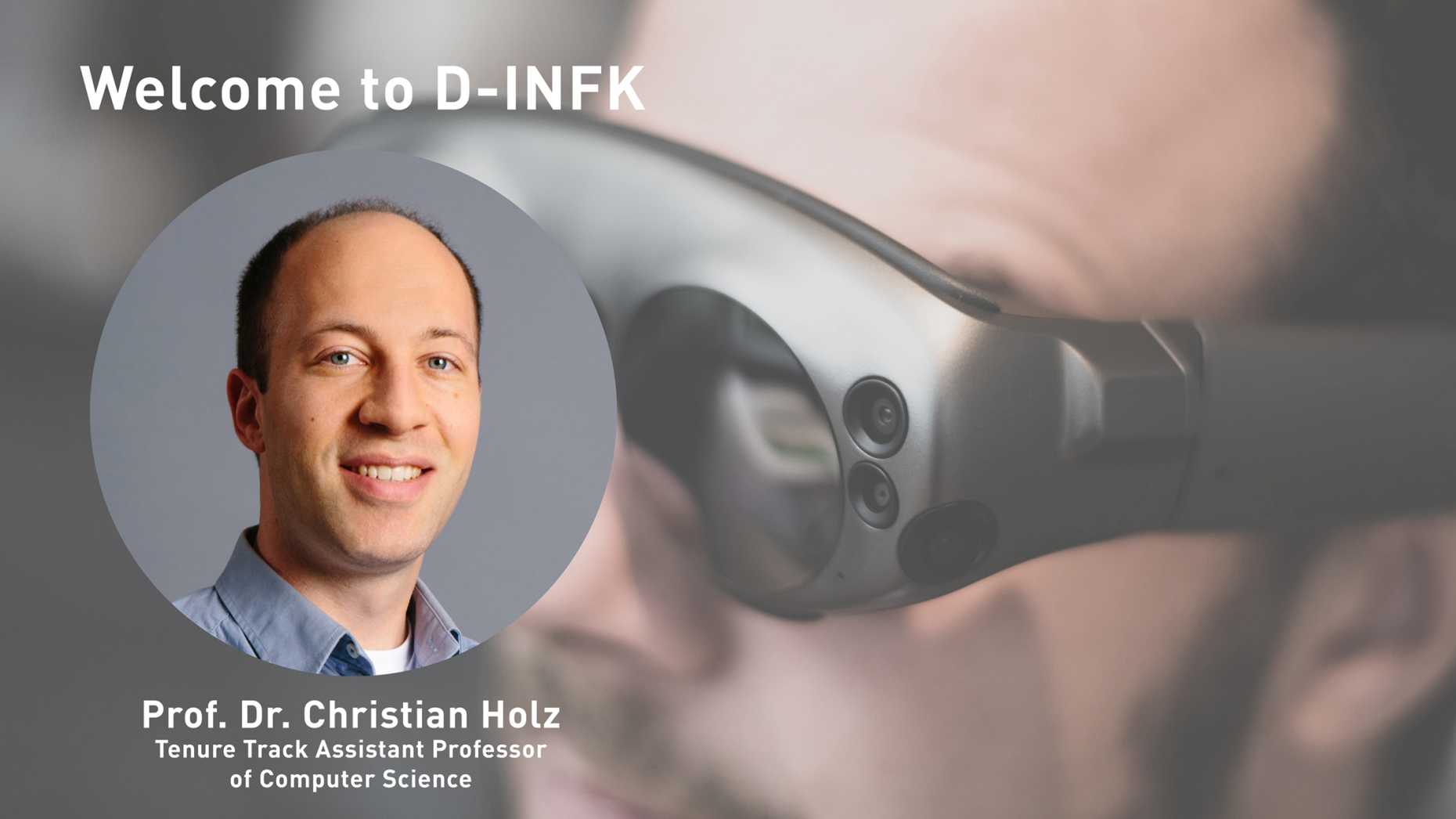Welcome, Professor Christian Holz
Christian Holz officially joined the Department of Computer Science of ETH Zurich in August 2019 as Tenure Track Assistant Professor of Computer Science. Get to know him in this short interview.

Professor Holz, welcome to ETH! What are your current research interests?
Thank you! My team is called SIP lab – sensing, interaction & perception lab – and our research spans three areas: enabling immersive experiences in mixed reality, building interactive devices and continuous physiological sensing for predictive health monitoring. Interestingly, these three areas have a lot in common and we believe that in the future, they will cross-pollinate even more.
What is the impact of your research on society?
In human-computer interaction, we’re constantly trying to build and understand the platforms of the future, along with the interaction modalities that we might be using and the opportunities for devices to make sense of input to perceive our – the users’ – intentions accurately and as intended. In my team, we think that technology is moving closer to the human body, to a point where we might wear it throughout. We see a lot of potential for head-worn virtual and augmented reality platforms and enjoy exploring what this shift in technology use may mean for users, including the technological challenges and their social perception, but also aspects of accessibility. Conversely, we are also exploring how such worn devices, some of them potentially as small as a mole, may observe the wearer’s physiological system, unobtrusively but continuously monitoring vital signs and other health metrics. Our goal is to obtain a holistic representation of a person’s health status through continuous monitoring that far exceeds the spot checks that we’re used to today.
Where were you working before you came to ETH?
I spent the past six years in industrial research labs on the US west coast, first briefly at Yahoo Labs in the Bay Area and then at Microsoft Research in Seattle, Washington. Those research labs have established a fascinating culture around innovation, teamwork and impact. What impressed me in particular is how they bring experts from across many disciplines together, create a tremendously supportive environment and allow wild ideas to flourish. Having joined ETH now, the parallels in ambitions, can-do attitude and work excellence are obvious and I’m looking forward to a productive time in Zurich!
Which courses will you be teaching at ETH?
This autumn, I’m co-teaching Human-Computer Interaction, which equips students with the methods and tools that have allowed the successful consumer companies of today to prosper. Next spring, I’ll be co-teaching Ubiquitous Computing, a course that will cover the various aspects of the technologies that weave themselves into our lives, including sensing, processing, perception of embedded systems, IoT, contextual awareness, social computing and privacy, as well as accessibility. My team will also be offering a seminar on Advanced Topics in Human-Computer Interaction to investigate and discuss cutting-edge research results in the field.
What are your first impressions of Switzerland and ETH?
I am super excited about joining ETH and moving to Switzerland. Having grown up in the mountains and lived the past couple years in Seattle with weekly activities in the Cascades, I have immediately taken to the beautiful nature around Zurich. During my short time at ETH, I have already noticed how ambitious, discerning and hardworking students are over here. I’m looking forward to interacting with many of them and to exploring collaborations, maybe even in the context of Zurich and its surroundings. In fact, the first Master’s thesis I’m now supervising will take us and the technology we’re building up to Jungfraujoch a couple of times – fun!